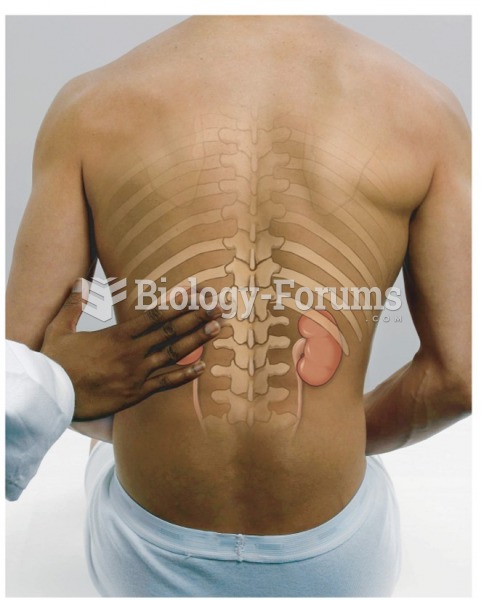|
|
|
Amphetamine poisoning can cause intravascular coagulation, circulatory collapse, rhabdomyolysis, ischemic colitis, acute psychosis, hyperthermia, respiratory distress syndrome, and pericarditis.
In most climates, 8 to 10 glasses of water per day is recommended for adults. The best indicator for adequate fluid intake is frequent, clear urination.
In the United States, an estimated 50 million unnecessary antibiotics are prescribed for viral respiratory infections.
About 100 new prescription or over-the-counter drugs come into the U.S. market every year.
The liver is the only organ that has the ability to regenerate itself after certain types of damage. As much as 25% of the liver can be removed, and it will still regenerate back to its original shape and size. However, the liver cannot regenerate after severe damage caused by alcohol.
 Thoracentesis. A needle is inserted between the ribs to withdraw fluid from the pleural sac at the b
Thoracentesis. A needle is inserted between the ribs to withdraw fluid from the pleural sac at the b
 GI endoscopy. (a) Similar to other forms of GI endoscopy, laparoscopy involves the insertion of a sp
GI endoscopy. (a) Similar to other forms of GI endoscopy, laparoscopy involves the insertion of a sp




